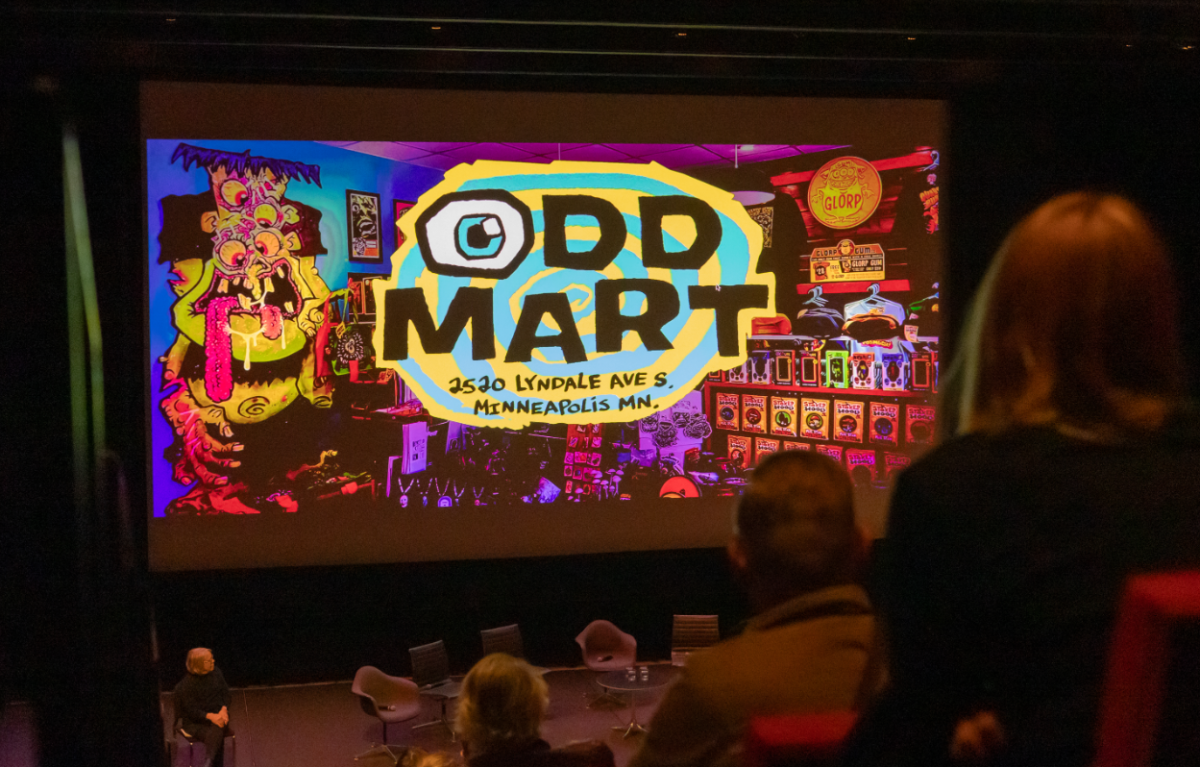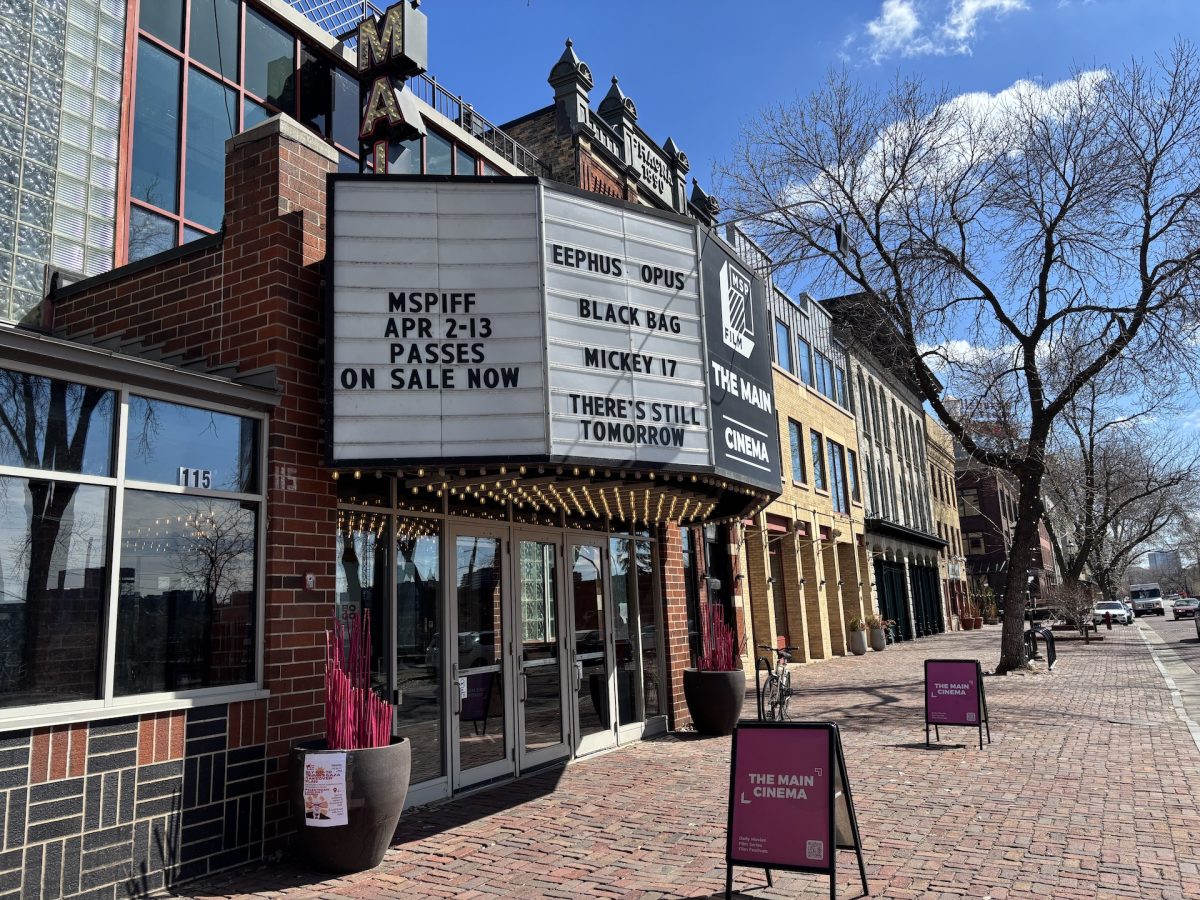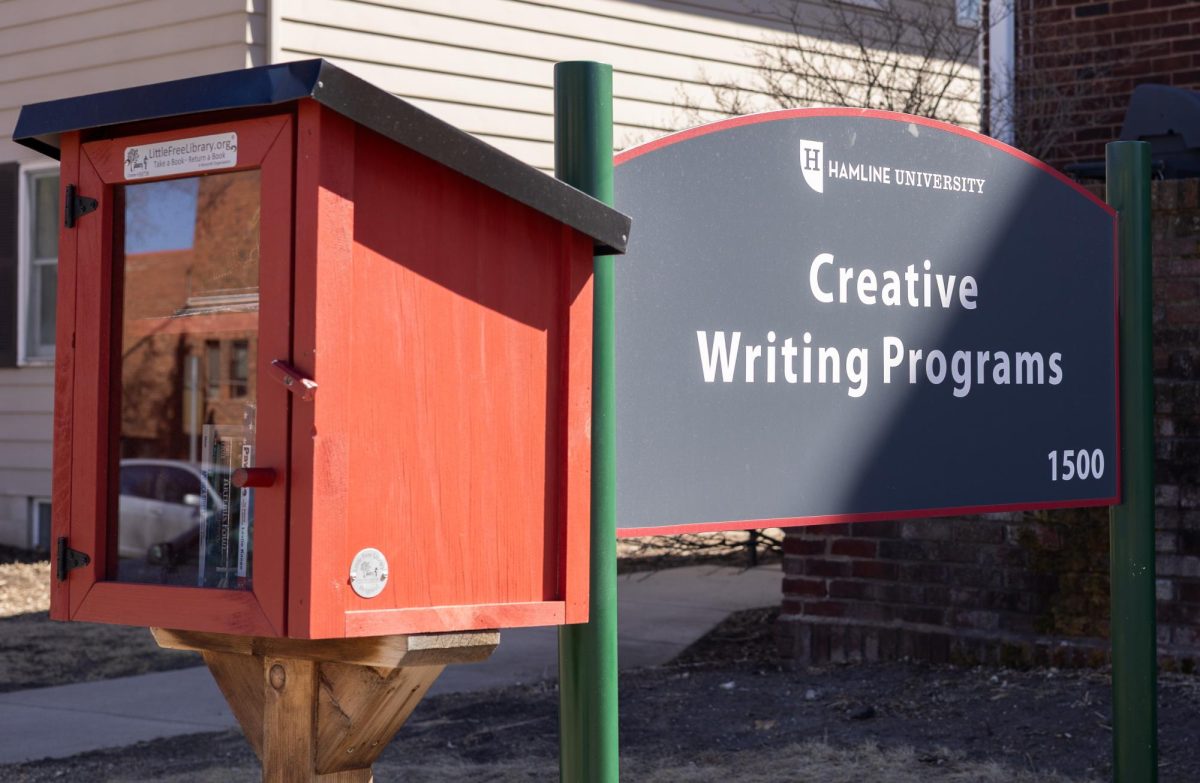In another edition of the Walker Art Center’s spectacular Regis Dialogue series, held Friday, film director Alexander Payne sat down with Los Angeles Times film critic Kenneth Turan to discuss his films and his creative process.
It was the one thing that wasn’t discussed, however, that left the event feeling somewhat scattered and superficial.
Regularly, on the pages of A&E and in many newspapers across the country, Payne’s films, including “Citizen Ruth,” “Election,” “About Schmidt” and “Sideways,” have been hailed as satirical, edgy critiques of the U.S. middle class. However, if these thoughts never occurred to a viewer who saw the works simply as comedies, Payne’s presentation would have done nothing to raise the issue.
Instead, Turan and Payne focused on the creative process and the economic game directors must play in modern Hollywood; in other words, how to make a movie and how to find the means of making another movie.
Payne has always made films of consequence and he poked fun at the financing of his very first film, “Citizen Ruth,” joking, “Who’s gonna finance an abortion comedy?”
In a slight quirk of fate, “Ruth” found its funding thanks to a personal favor owed to the film’s producer. One favor, Payne said, is what his career hinged on.
He discussed his close partnership with writer Jim Taylor and detailed how they labor extensively on their scripts before filming even starts. Payne said he prefers films to follow his screenplays strictly and seemed a bit unsettled – both delighted and frustrated – with the multiple film clips shown during the presentation.
One sensed his films were still a work in progress, at least in his mind.
The closest Payne came to discussing the deeper meanings of his films was observing that he labors to make films “in relief,” or in contrast, where things such as comedy, offensiveness and pain are constantly opposed by tragedy, naivete and joy. His films alternate between extremes, and his conversation Friday made it evident that it’s an intentional quality.
But instead of discussing the political controversy of
“Ruth,” middle-class hostilities of “Election,” desperation of “About Schmidt,” or rotten inner core of “Sideways,” he instead seemed more interested in discussing how he uses their popularity to move forward.
His next project? Maybe even a western, he said – if it’s a good script.
He said every great filmmaker is only concerned about making the next film, and he said the furor surrounding “Sideways” (he won an Oscar for his screenplay) has been the most surreal time of his life.
But responding to an audience question about how he’s held up under this chaos, during a painfully brief question and answer session, he said he tries to get past the hype and focus instead on his work.
And that, for better or worse, was the theme of his conversation with Turan. Sure, he could talk about the meanings and messages behind his films, but rather than reflect, he instead wanted to talk about how he does what he does and show his determination in using fame to do far more of it.
Mr. Payne, we can’t wait.







